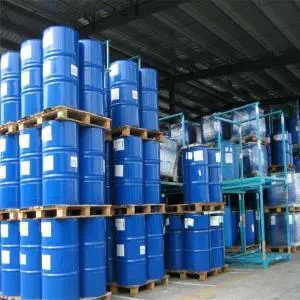Isopropanolthiab acetone yog ob hom organic tebchaw uas muaj cov khoom zoo sib xws tab sis cov qauv molecular sib txawv. Yog li, lo lus teb rau lo lus nug "Puas isopropanol tib yam li acetone?" yog kom meej tsis muaj. Kab lus no yuav txheeb xyuas qhov sib txawv ntawm isopropanol thiab acetone nyob rau hauv cov nqe lus ntawm cov qauv molecular, lub cev muaj zog, tshuaj lom neeg, thiab daim ntawv thov teb.
Ua ntej tshaj plaws, cia peb saib cov qauv molecular ntawm isopropanol thiab acetone. Isopropanol (CH3CHOHCH3) muaj cov qauv molecular ntawm C3H8O, thaum acetone (CH3COCH3) muaj cov qauv molecular ntawm C3H6O. Nws tuaj yeem pom los ntawm cov qauv molecular uas isopropanol muaj ob pawg methyl ntawm txhua sab ntawm pawg hydroxyl, thaum acetone tsis muaj methyl pawg ntawm carbonyl carbon atom.
Tom ntej no, cia peb saib lub cev lub cev ntawm isopropanol thiab acetone. Isopropanol yog cov kua dej tsis muaj xim uas muaj qhov kub ntawm 80-85 ° C thiab qhov chaw khov ntawm -124 ° C. Nws yog insoluble hauv dej tab sis soluble hauv organic solvents. Acetone kuj yog cov kua dej tsis muaj xim uas muaj qhov kub ntawm 56-58 ° C thiab qhov chaw khov ntawm -103 ° C. Nws yog miscible nrog dej tab sis soluble hauv organic solvents. Nws tuaj yeem pom tias qhov kub thiab txias ntawm isopropanol yog siab dua li cov acetone, tab sis lawv cov solubility hauv dej sib txawv.
Thib peb, cia peb saib cov tshuaj lom neeg ntawm isopropanol thiab acetone. Isopropanol yog ib qho dej cawv nrog hydroxyl pawg (-OH) ua haujlwm ua haujlwm. Nws tuaj yeem cuam tshuam nrog cov kua qaub los tsim cov ntsev thiab koom nrog kev hloov pauv nrog cov tshuaj halogenated. Tsis tas li ntawd, isopropanol kuj tuaj yeem dehydrogenated los tsim propene. Acetone yog ketone compound nrog carbonyl pawg (-C = O-) ua pab pawg ua haujlwm. Nws tuaj yeem cuam tshuam nrog cov kua qaub los tsim cov esters thiab koom nrog cov tshuaj tiv thaiv ntxiv nrog aldehydes lossis ketones. Tsis tas li ntawd, acetone tuaj yeem ua polymerized los tsim polystyrene. Nws tuaj yeem pom tias lawv cov khoom siv tshuaj lom neeg sib txawv heev, tab sis lawv muaj lawv tus kheej cov yam ntxwv hauv cov tshuaj tiv thaiv.
Thaum kawg, cia peb saib ntawm daim ntawv thov teb ntawm isopropanol thiab acetone. Isopropanol yog dav siv nyob rau hauv cov tshuaj, tshuaj zoo, tshuaj tua kab, textiles, thiab lwm yam. Vim nws zoo solubility nyob rau hauv dej, nws yog feem ntau siv raws li ib tug hnyav rau extracting thiab cais tej yam ntuj tso tshuaj. Tsis tas li ntawd, nws kuj yog siv rau kev sib txuas ntawm lwm cov organic tebchaw thiab polymers. Acetone feem ntau yog siv rau kev tsim khoom ntawm lwm cov organic tebchaw thiab polymers, tshwj xeeb tshaj yog rau kev tsim cov polystyrene resin thiab unsaturated polyester cob, yog li nws yog dav siv nyob rau hauv cov teb ntawm yas, textile, roj hmab, xim, thiab lwm yam. Tsis tas li ntawd, acetone kuj siv tau raws li ib tug general-lub hom phiaj hnyav rau extracting thiab cais tej yam ntuj tso tshuaj.
Hauv cov ntsiab lus, txawm hais tias isopropanol thiab acetone muaj qee cov khoom zoo sib xws hauv cov tsos thiab daim ntawv thov, lawv cov qauv molecular thiab cov khoom siv tshuaj sib txawv heev. Yog li ntawd, peb yuav tsum nkag siab zoo txog lawv qhov sib txawv kom zoo dua siv lawv hauv kev tsim khoom thiab kev tshawb fawb ua haujlwm.
Post lub sij hawm: Jan-25-2024





